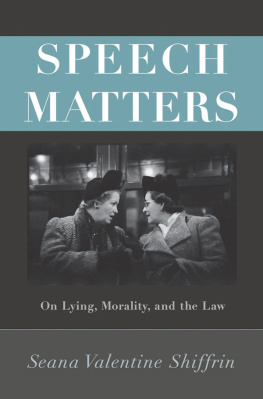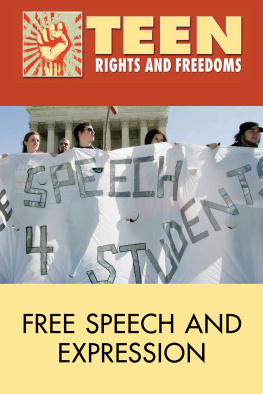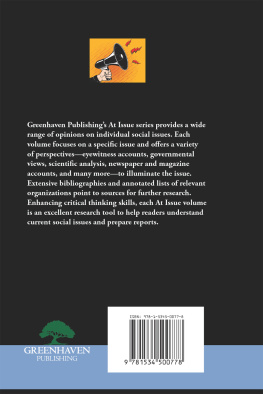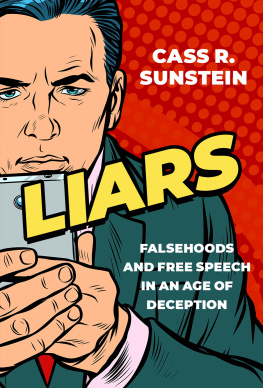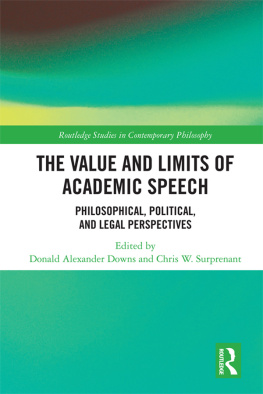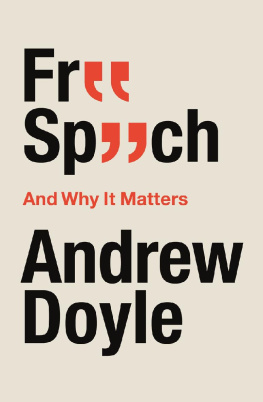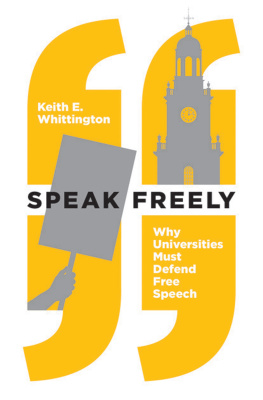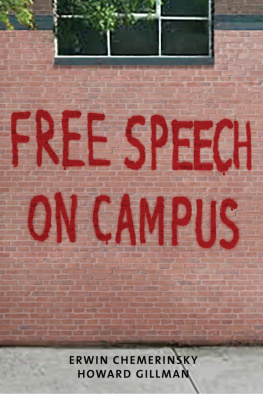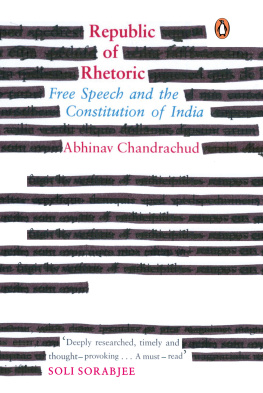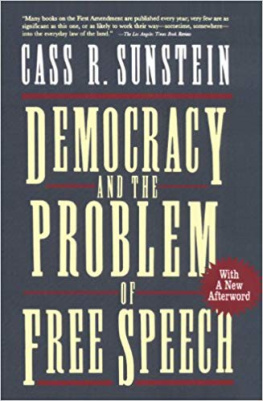
SPEECH MATTERS
C ARL G. H EMPEL L ECTURE S ERIES
SPEECH MATTERS
On Lying, Morality, and the Law
Seana Valentine Shiffrin
PRINCETON UNIVERSITY PRESS
Princeton and Oxford
Copyright 2014 by Seana Valentine Shiffrin
Requests for permission to reproduce material from this work should be sent to Permissions, Princeton University Press
Published by Princeton University Press, 41 William Street, Princeton, New Jersey 08540
In the United Kingdom: Princeton University Press, 6 Oxford Street, Woodstock, Oxfordshire OX20 1TW
press.princeton.edu
Jacket photograph: Subway Passengers, New York City: Two Women in Conversation, January 27, 1941, Walker Evans (19031975). Film negative, 35mm. The Metropolitan Museum of Art, Walker Evans Archive, 1994 (1994.253.626.1). Image copyright Walker Evans Archive, The Metropolitan Museum of Art, New York, NY, USA. Image source: Art Resource, NY.
All Rights Reserved
Library of Congress Cataloging-in-Publication Data
Shiffrin, Seana Valentine.
Speech matters : on lying, morality, and the law / Seana Valentine Shiffrin.
pages cm. (Carl G. Hempel lecture series)
Includes bibliographical references and index.
ISBN 978-0-691-15702-3 (hardcover : alk. paper)
1. Truthfulness and falsehood. 2. Freedom of speech. I. Title.
BJ1421.S554 2015
177.3dc23 2014036621
British Library Cataloging-in-Publication Data is available
This book has been composed in Sabon
Printed on acid-free paper.
Printed in the United States of America
1 3 5 7 9 10 8 6 4 2
For Vala
Contents
CHAPTER ONE
Lies and the Murderer Next Door |
CHAPTER TWO
Duress and Moral Progress |
CHAPTER THREE
A Thinker-Based Approach to Freedom of Speech |
CHAPTER FOUR
Lying and Freedom of Speech |
CHAPTER FIVE
Accommodation, Equality, and the Liar |
CHAPTER SIX
Sincerity and Institutional Values |
Acknowledgments
This book explores a variety of issues about the importance of sincerity and freedom of speech, in morality and in the law. It began as two lectures offered in honor of two inspiring women: Lying and the Murderer Next Door, given in honor of Mala Kamm at New York University, and Duress and Moral Progress, given in honor of Barbara Herman at Cornell University. The common themes of those lectures induced me to combine them and then to extend the arguments to the institutional context of the university for the Hempel Lectures at Princeton.
The Hempel Lectures emphasized philosophical, moral issues surrounding sincerity. In preparing them for publication, I decided to interweave three additional chapters that more directly concern theoretical legal issues about speech and its regulation. An earlier version of the third chapter, which advances a thinker-based defense of freedom of speech, was previously published in Constitutional Commentary (Fall 2011). I have substantially revised that essay, added new material on children and the mentally disabled, and incorporated some replies to critics. None of the other chapters draw on previously published material. I am grateful to Princeton University for the opportunity to present the Hempel Lectures, to Princeton University Press for publishing them, and to Rob Tempio for his patient encouragement.
I am humbled by the generous institutional, collegial, and familial support offered to me while working through these ideas. I can only make a partial attempt at voicing my appreciation. Discussions with Vincent Blasi, Tyler Burge, and David Kaplan, some quite long ago, encouraged my interest in these subjects and profoundly influenced the direction of my thinking. Later conversations with Joseph Almog, Asli Bali, Jennifer Dworkin, Gillian Lester, Tyler Meade, Michael Schrag, Neesa Levine, Jacob Shiffrin, and Benjamin Shiffrin (sometimes charged) deepened my engagement with these themes.
More generally, I have been helped enormously by exposure to the stimulating, supportive, and dedicated intellectual culture at UCLA, both in the Philosophy Department and at the Law School, and especially its long-standing tradition of spirited dialogue about freedom of speech, testimony, and the conditions of a successful moral and political culture. I have been inspired by the wide array of colleagues and students who contribute to this dialogue and, in particular, those who have attended courses and seminars at UCLA about freedom of speech, contract theory, controversial communications, and truthfulness and promising. While thinking through these questions, I have been fortunate to work with and learn from extremely talented graduate students who have written on closely related issues, particularly Collin ONeil, Robert Hughes, Jorah Dannenberg, Erin Taylor, and Jeffrey Helmreich. A small evening seminar of law and philosophy students, cotaught with Ronald Dworkin, discussed an early draft and offered stimulating and challenging resistance.
The research and administrative support at UCLA, particularly from the UCLA Hugh and Hazel Darling Law Library, is beyond parallel. Special thanks for research assistance are owed to Daisy Ding, Robert Double, Joseph Gilmore, David Schleider, Terry Stedman, Matthew Straw-bridge, Stephen White, Lorien Whitehead, and Kevin Whitfield.
I am appreciative of the close care shown by Jill Harris, Eva Jaunzems, Kate Mertes, and Elyse Meyers in the preparation of the manuscript and index for publication.
I have also benefited from thoughtful, sometimes pointed, criticism from members of the September Group and from audiences in philosophy departments, law schools, and other fora at Boston College School of Law, Columbia University School of Law, Cornell University, Harvard Law School, Kings CollegeLondon, Massachusetts Institute of Technology, New York University, Pepperdine School of Law, Queens University, University of Colorado Boulder, University of Chicago School of Law, University of Sheffield, University of Virginia School of Law, Wayne State University, Yale Law School, and the IVR World Congress in Frankfurt, Germany. A grant from the Spencer Foundation and a Spencer Foundation conference on Justice and the Aims of Higher Education helped to make the work on the chapter on academic freedom and academic misrepresentation possible. My week at Princeton delivering the Hempel Lectures was especially fruitful.
arose from a multi-year e-mail discussion group on freedom of speech, spearheaded by Ed Baker and James Weinstein, that also included Vincent Blasi, Robert Post, Thomas Scanlon, Steven Shiffrin, Eugene Volokh, and Susan Williams. The products of our discussions were published in two collaborative symposia in the Virginia Law Review (2011) and Constitutional Commentary (2011). Each members contributions prompted further development of and revisions to my own account.
Finally, a handful of people have offered a priceless combination of unstinting personal support, substantive assistance, and intellectual inspiration about these issues through lengthy conversations, more than generous feedback, their own writings, and their approach to life. Only a small fraction of my debt to them is evident in some footnotes. Largely, I remain speechless in gratitude toward Barbara Herman, Liam Murphy, William Rubenstein, Steven Shiffrin, Amir Vala Tavakoli, Joanna Valentine, and Mary Valentine.
SPEECH MATTERS
INTRODUCTION
We cannot develop or flourish in isolation. Our mutual interdependence is not merely material but also, importantly, mental. The exchange of thoughts, beliefs, emotions, perceptions, and ideas with others is essential to each persons ability to function well as a thinker and as a moral agent. Sincere communication with others is, likewise, crucial to our ability to live together and to pursue our joint moral aims. Because we cannot peer into one anothers minds, we depend upon others to convey their mental contents with precision and rich content through sincere communication. Sincere communication permits us, then, to share knowledge and hypotheses and to share needs, emotions, intentions, convictions, ambitions, desires, fantasies, disappointments, and judgments. Thereby, we are enabled to form and execute complex cooperative plans, to understand one another, to appreciate and negotiate around our differences, and to gauge, somewhat, the extent of our mutual ineffability. These achievements are important components of fulfilling the full range of our moral duties and ends, which involve mutual recognition, helping and respecting others, and responding to others as individualsactivities that often involve assessments of what others think, believe, and will.
Next page
